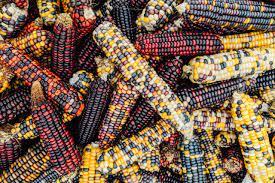
[Translation] In the GM corn dispute with the United States, the Mexican cause is supported by science and will be able to achieve the goal of banning this product if the decision is "fair," says Steven Druker, director of the U.S.-based Alliance for Bio Integrity.
In his book Altered Genes, Adulterated Truth, recently re-released in Mexico, Druker explains "how the genetically modified food company has disrupted science, corrupted governments and deceived the population." He maintains that the country can only lose the controversy within the North American trade agreement if those who decide reject the evidence, the principles of justice and want to promote genetically modified organisms.
In 2018, Druker was disqualified by the Mexican Academy of Sciences for that book, in particular by Francisco Bolívar Zapata in his book Transgénicos: grandes beneficios, ausencia de daños y mitos. Since then, Druker has demanded that the academy retract and offer him a formal apology.
In a letter sent in 2019 to Zapata, he stated, "My book demonstrates that the transgenic adventure has depended chronically and crucially on the misrepresentation of facts by respected scientists and scientific institutions. Their behavior also exemplifies another main theme of my book, that many scientists who advocate GMOs are averse to the facts and are reluctant to confront the evidence."
In an interview, he states that some institutions have ignored and failed to present scientific evidence of the damage caused by GMOs.
It is not only Monsanto and Dupont companies that deny that these products are harmful, but also respectable regulatory agencies and recognized research institutions, he points out. "I can't say there is a conspiracy, but it is clear that in most countries they have loosened regulation, relaxed rules on genetically modified organisms."
He points to studies that have proven the harmful effects on animals of GM maize, such as Gilles-Eric Serálini's 2012 study. The companies argue that those analyses are "weak or invalid," but they have never "proven the safety of transgenics," he assures.
He describes Mexico's decision to accept transgenic corn for consumption by animals (imports for the livestock sector) as exceptional. "I know that, in the short term, this can help, they does not yet have sufficient production. In the future, the problem can be solved with food sufficiency."
